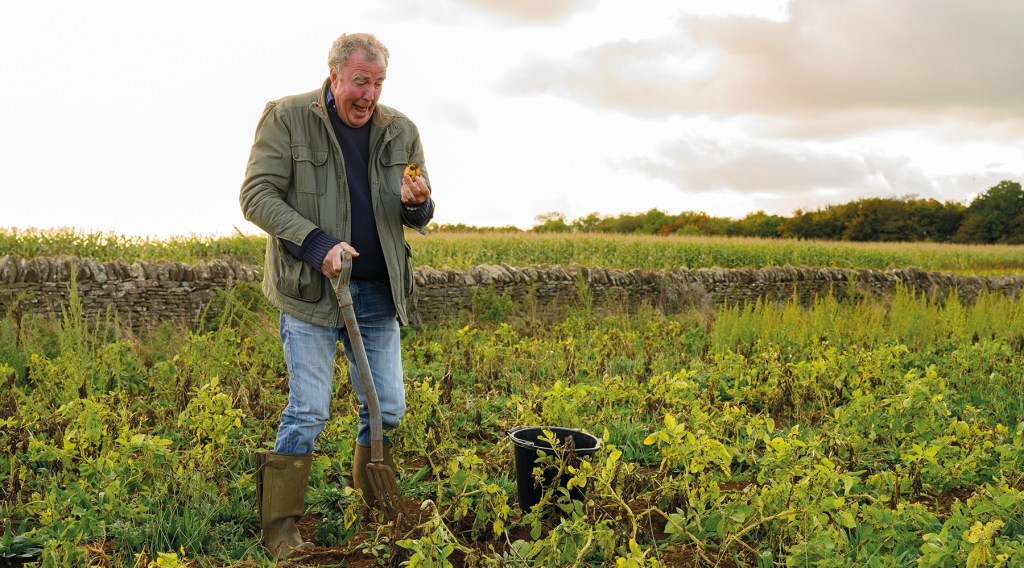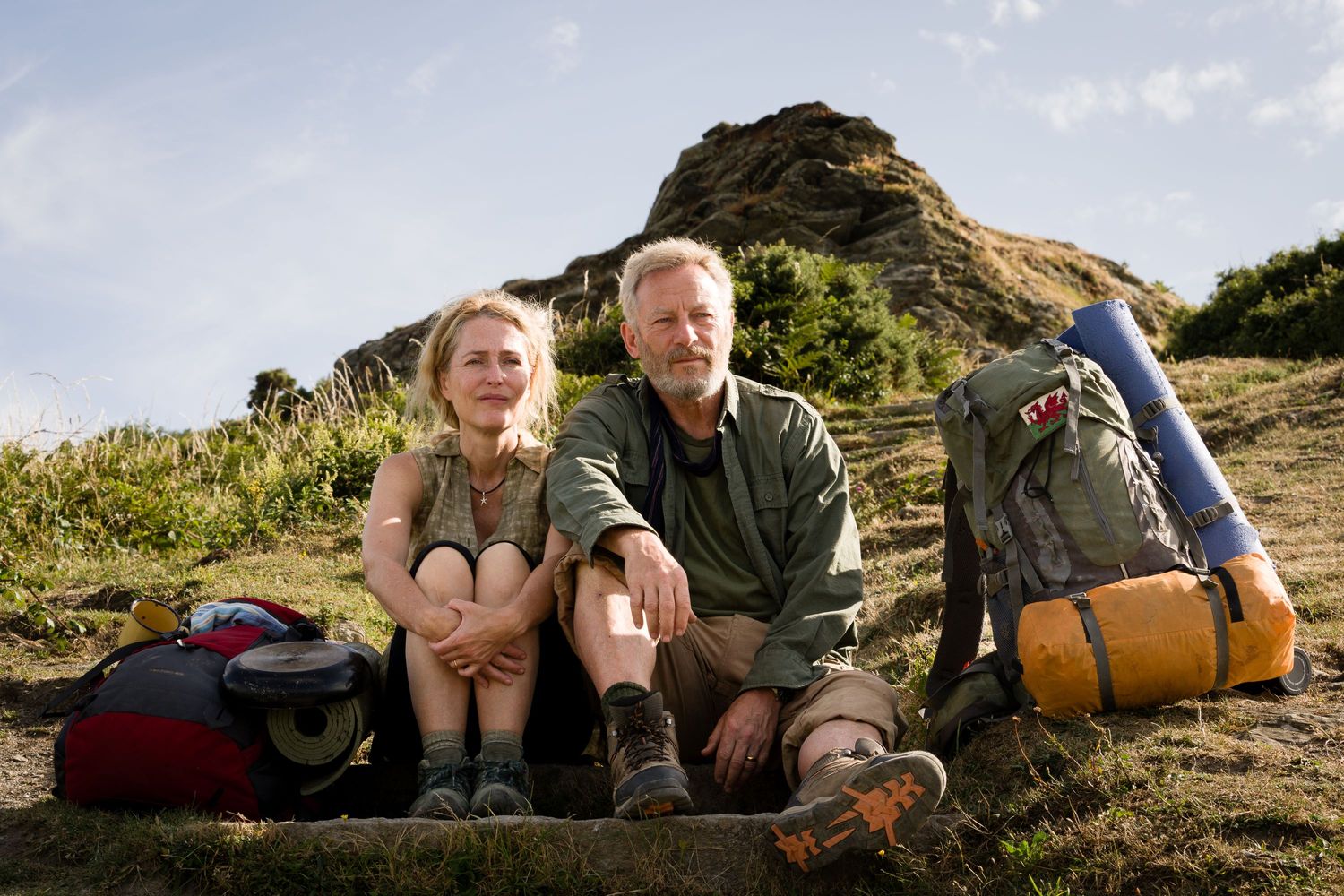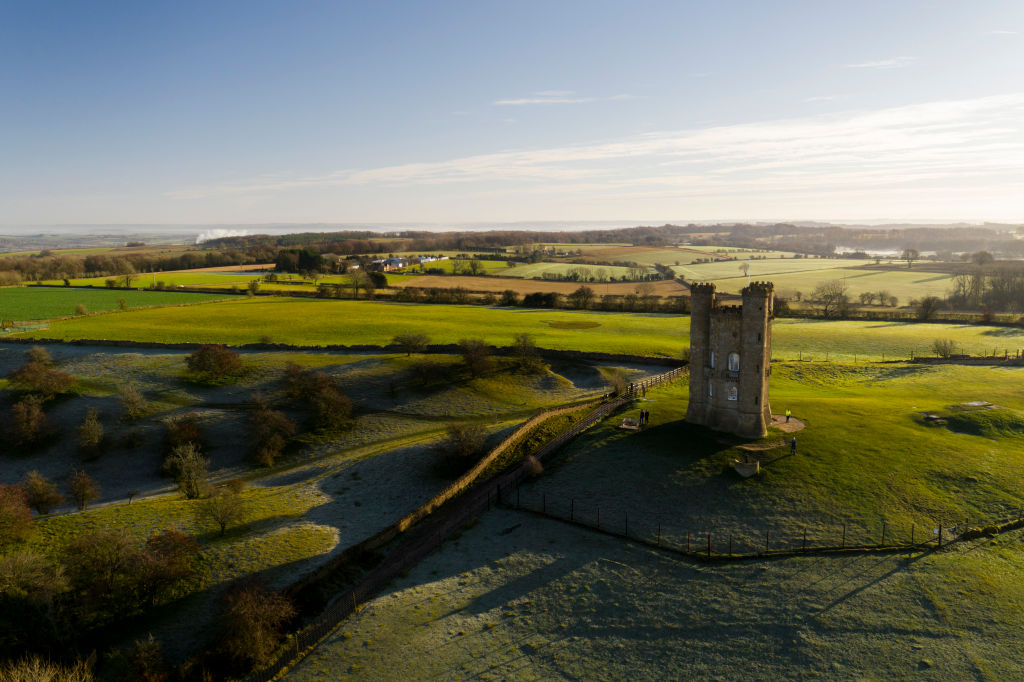I was at a party the other day when who should accost me but Jeremy Clarkson. There were lots more famous and interesting people in the room, including the surviving half of Wham!. But Clarkson was itching to talk to me about, of all things, a review I’d written of a BBC reality series called This Is My House. He was genuinely mystified as to why I’d given such tosh a favorable critique.
Having just watched his new series, Clarkson’s Farm, I now understand his puzzlement. Since late 2019, Clarkson has been playing at being a farmer on his 1,000-acre Oxfordshire estate. And when you’re a farmer — even a gentleman amateur who doesn’t need the income — you simply haven’t the time to lounge in front of the box, as most of us do, gawping in tongue-lolling idiocy at whatever random crap is flickering on the screen. You’re still out in the field till all hours, desperately trying to get your seeds drilled before the heavens open again. Or retrieving lost sheep. Or measuring the circumference of your prize ram’s testicles.
Quite how much of this amusing visual material was staged or scripted we can only speculate. But given that everything on screen is a lie or a fabrication, my guess would be: a lot. Not that it matters though. One of the reasons Clarkson got to be rich enough to be able to buy up swathes of the Cotswolds is that he really is exceptionally good at what he does: conveying all manner of fascinating information while pretending to be a complete arse.
Take his choice of tractor. Clarkson being Clarkson it has to be a Lamborghini. Cue various rustic types rolling their eyes and telling him it’s far too big for the job in hand. But Clarkson is adamant and won’t take advice from all these pesky bumpkins with their unintelligible accents and their years of hard-won experience. If he can find a short cut, he’ll take it.
One of these wheezes briefly seems to work. Instead of a trained sheep dog (£20,000!), he thinks he can round up his newly acquired flock of sheep with a drone (including a loudspeaker that makes barking noises). All goes swimmingly until the sheep decide they’re no longer interested in being herded by the drone, sometimes staying resolutely immobile as the recorded dog yaps above them, sometimes stampeding over a stretch of his 40 miles’ worth of dry-stone estate walls and leaving a pile of rubble.
His most irresponsible moment, though, is during his seed drilling. It’s peaceful and beautiful but very monotonous, especially the bit at the end of each run where you have to do a three-point turn so that your furrows align. Clarkson decides he’s going to do it in sweeping curves instead, hoping he can make it match up later. But he has made a fatal rookie error so egregious and basic it’s almost unimaginable he wasn’t forewarned.
The mistake is this. When sowing crops like wheat you have to leave blank rows so that, later in the season, the pesticide sprayer can line up and ensure total coverage. (I apologize for my technically inexact terminology. I’m not a farmer either.) There’s a lad by the name of Kaleb who gives Clarkson farming lessons — and when he comes back and sees what Clarkson has done he is genuinely furious.
This is another of the series’s great strengths: Clarkson has managed to collect a superb menagerie of rural characters. Kaleb, 21, who doesn’t own a single book but already knows everything there is to know about farming, is the best find. But there are also sundry comedy vets, shepherdesses, lightly disapproving estate managers (they all wear ties, always) and, my other favorite, the dry-stone waller who rambles on as Clarkson nods but who is genuinely incomprehensible.
Perhaps the standout moment of the series so far, though, is its unflinching treatment of the fate of the three ewes with deformities which mean that they cannot safely be tupped. They’re of no use for lambing, obviously; nor can they be kept as just a trio, for sheep need to be in herds. The solution is obvious and inescapable — but Clarkson reaches it only after much angst and soul-searching.
Off he goes to the abattoir with his three ovine friends in the trailer. Having spent the past decade surrounded by sheep, I know how he feels: they are stupid, timid suicide machines but you can grow very fond of them, especially the tamer ones. Part of me wished Clarkson hadn’t included this section: the meat industry is under a big enough threat as it is, without squeamish audiences having their noses rubbed in the necessary ruthlessness of livestock farming and going vegan because they had no idea fluffy sheep had to die to make lamb chops. But it’s definitely worth it for the gloriously Clarksonish pay-off, which I’m not going to spoil because you must watch for yourself. Clarkson’s Farm is first-rate TV.
This article was originally published in The Spectator’s UK magazine. Subscribe to the World edition here.

























